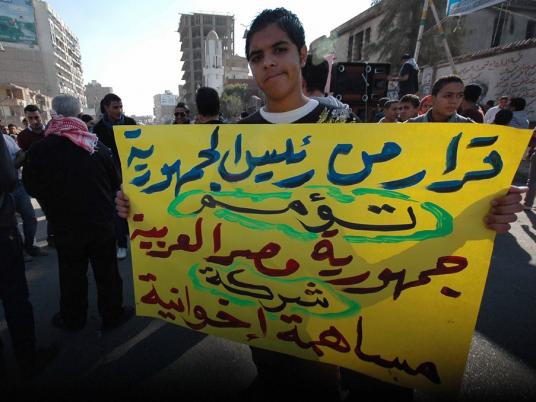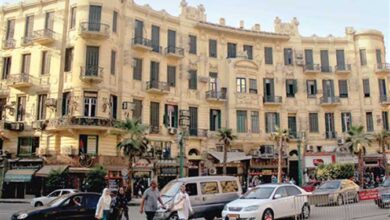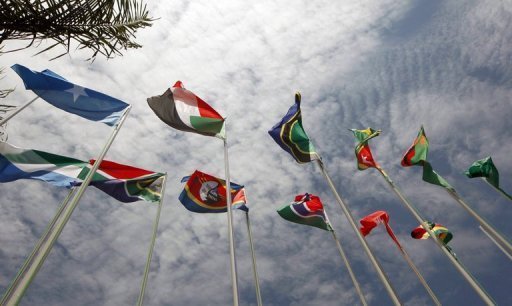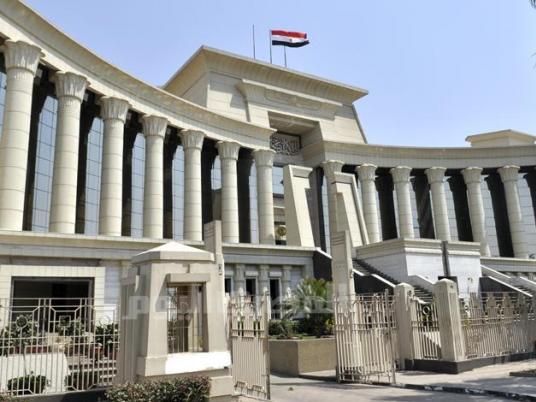
Numerous portrayals of the ongoing civil disobedience in Port Said dominate Thursday’s press. State-owned newspapers underlined the heavy financial losses the busy port city is suffering as a result of strike action, while their independent counterparts highlight the state’s failure to contain the situation.
State dailies Al-Ahram and Al-Akhbar lament how much these acts of civil disobedience, which include sit-ins and road blocks, are costing the canal community. According to them, Port Said has lost millions of pounds per day as a result of Port Said strikes. They also warn that calls for civil disobedience have spread to Ismailia, Suez and Alexandria.
Inside Al-Ahram is a comprehensive report on the situation in Port Said, which questions whether the decision to cancel Law 5 for 2002, which shut down the city's economic free zone, is enough to end the crisis.
Al-Akhbar also raises red flags on Port Said strike and the possibility it will eventually affect traffic and transport at the Suez Canal.
Meanwhile, state daily Al-Gomhurriya leads with the dramatic headline “Not the Suez Canal,” contending that civil disobedience will not reach canal workers. The article reports that it is business as usual, accoding to the canal’s authorities, which have defied calls for strike action.
It adds that although workers at the canal are pushing for the government to give in to protester demands in Port Said, they are refusing to stage similar strikes to prevent foreign intervention in Egypt.
The state's Al-Gomhurriya also lays subtle blame for the crisis on protesters and strikers, calling for an ending to the acts of civil disobedience in Port Said as well as the ongoing sit-in at Cairo's Tahrir Square.
On the other side of the spectrum, independent papers tackle the situation in Port Said from a different angle.
Independent daily Al-Shorouk newspaper portrays a less chaotic and costly image of the ongoing civil disobedience. It describes the scene as protesters flying large balloons along the canal and carrying signs that read “SOS.”
The independent newspaper also criticizes the state’s refusal to address the city’s demands, adding that “strike fever” is spreading to Ismailia.
Independent Al-Tahrir newspaper also describes the civil disobedience as a “challenge to Morsy’s legitimacy.”
The Freedom and Justice newspaper, which is the official FJP publication, offers yet another perspective on the situation. Dubbing the canal cities “gateway to development,” the paper goes on to say President Mohamed Morsy’s decision to reinstate the free zone rids the “brave cities’ people of the former regime’s injustices.”
Its headline bid “farewell to the neglect” of the canal cities, adding that the president’s decision will revive the city and provide 100,000 job opportunities.
Egypt's newspapers also discuss the new Sukuk law, along with government incentives for industrial projects in Sinai and Upper Egypt.
State papers reveal the looming crisis in national foodstuff reserves like wheat, which was discussed by the Cabinet Wednesday. The newspapers report that Egypt’s current wheat stocks will only last 101 days, less than four months, while sugar reserves are enough for 66 days. The country’s supply of rice and oil are set to last until April.
Thursday’s papers also cover the Supreme Constitutional Court's ruling that parts of the elections law are unconstitutional. They report that the Shura Council is currently working to amend the legislation and that Morsy has decided the upcoming parliamentary elections will be held inMay.
The state's Al-Gomhuriya prints an analysis of the upcoming elections, compiling predictions of pundits and politicians of how things will go. It seems though experts and politicians are divided over how well the FJP will do. Some say the FJP will earn a majority of votes again since they have little opposition, but others say the party's declining popularity will hurt its numbers.
Independent Al-Tahrir criticizes what it describes as the FJP’s “hasty” measures to amend the elections law, while competitor Al-Shorouk quotes a source in Mohamed ElBaradei’s Dostour Party saying the National Salvation chief might run in the upcoming elections if they are free and fair.
Some newspapers also touch on tensions between the Muslim Brotherhood and the military. Government-owned Al-Akhbar quotes a military source who said the recent decision to flood the tunnels between Rafah and Gaza was not meant to contribute to the siege on Gaza. Instead the tunnels were shut down to maintain Egypt's national security.
Independent Al-Shorouk also tackled the controversy of Muslim Brotherhood members supposedly infiltrating the military's ranks, quoting a military source saying the institution rejects the infiltration of any members with political affiliations.
He explained that the military academy is selective when it comes to choosing students and turns away anyone with Islamist or liberal affiliations.
In Thursday’s FJP edition, the newspaper can’t resist a usual dig at the NSF, quoting a tweet by the front’s spokesperson Hussein Abdel Ghany, who apparently alluded to a disconnect between front men ElBaradei and Hamdeen Sabbahi.
The article says the spokesperson of the “so-called National Salvation Front” places the blame on the front’s weakness on ElBaradei and Sabbahi, saying “they don’t follow each other on Twitter or in real life.”
Egypt’s papers:
Al-Ahram: Daily, state-run, largest distribution in Egypt
Al-Akhbar: Daily, state-run, second to Al-Ahram in institutional size
Al-Gomhurriya: Daily, state-run
Rose al-Youssef: Daily, state-run
Al-Dostour: Daily, privately owned
Al-Shorouk: Daily, privately owned
Al-Watan: Daily, privately owned
Al-Wafd: Daily, published by the liberal Wafd Party
Youm7: Daily, privately owned
Al-Tahrir: Daily, privately owned
Al-Sabah: Daily, privately owned
Freedom and Justice: Daily, published by the Muslim Brotherhood's Freedom and Justice Party
Sawt al-Umma: Weekly, privately owned
Al-Arabi: Weekly, published by the Nasserist Party
Al-Nour: Official paper of the Salafi Nour Party



